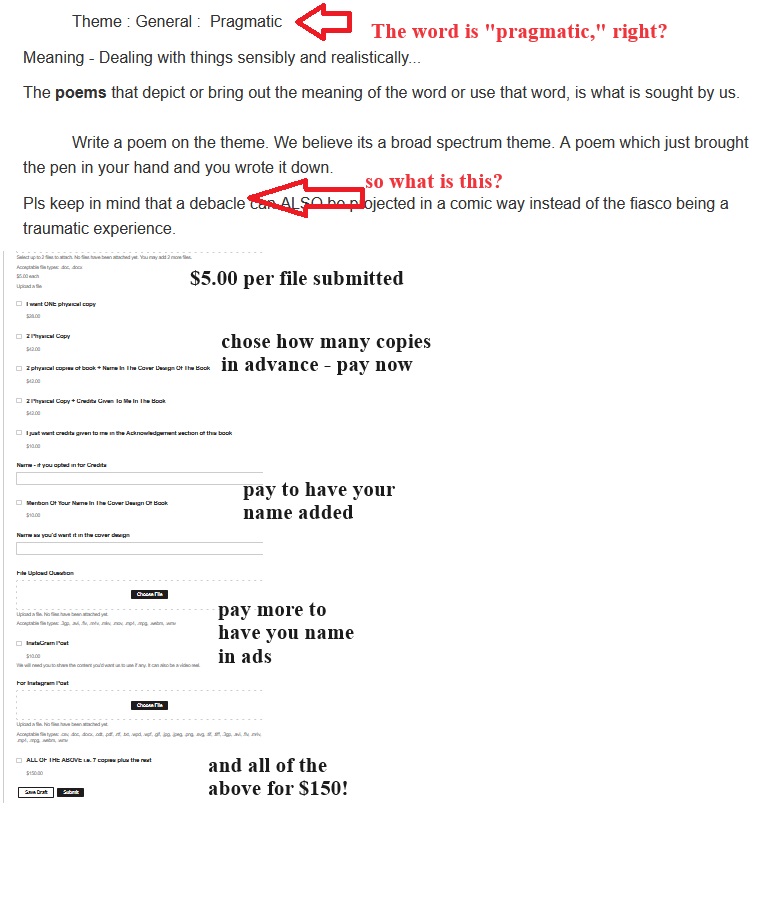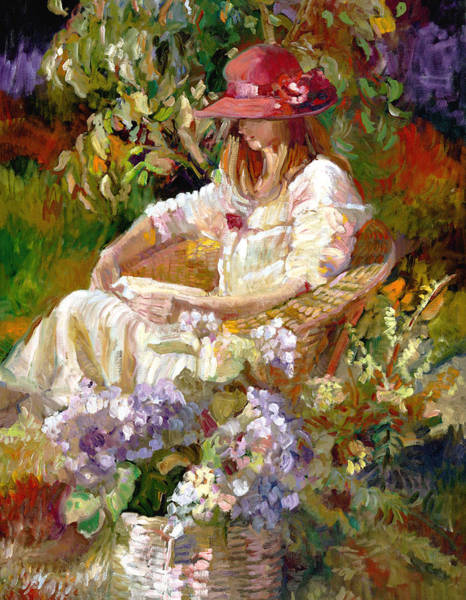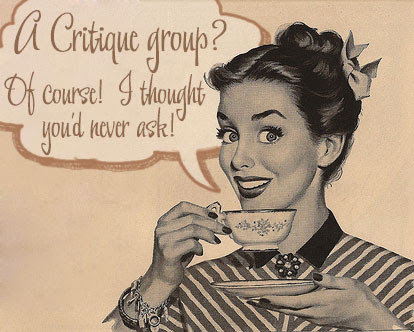Many of my publications have been in literary journals of one type or another. I haven’t minded the small fee, once in awhile, for submission.
But I have noticed fees have skyrocketed while many journals have gone online.
What’s worse is the slush pile of new “literary” journals asking for enormous fees. It’s disturbing and disgusting.
Questionable people with little or no credentials offering publication ONLINE. While they don’t guarantee publication, they are asking for fees and then one place even asked for payment for the publication in advance!
Submittable does charge a fee to journals to list their calls, but their fees are not in line with what is being asked by these questionable entities. (I hesitate to call them publishers).
Humans of the World is a website that asks for $6.00 fee to submit to their blog. Authors/writers pay to have their work on this blog? A quick tour of their website offers no publisher information – who is this run by? Who reads the submissions? How are submissions chosen? It appears they’ve been in business since 2022.
Poet’s Choice, based in Mumbai, has a number of calls, one is for word poems. I spotted an error in their call. There appears to be no fee requested – until you get to their submission page. Then they have a whole array of payment selections.

So – why haven’t I published in awhile? Look around – the publishing industry that we once knew is history.
I’m struggling to find reputable places to publish – as are many authors. Amazon takes many liberties with authors and they bought Ingram/Spark. Independent publishing is in question.
Credible journals are being lost. Publishers are extremely selective – they want someone with a large following for guaranteed sales. They do little to no promotion.
I have submitted some poems to a publisher, but then someone else showed me how they submitted an AI poem to the same publisher. I’m wondering if that is what I’m competing with. I’m looking forward to seeing the results of acceptance.
I’m not sure what will happen, where we will go, or where I might land. But I’m a writer. I keep writing.









You must be logged in to post a comment.